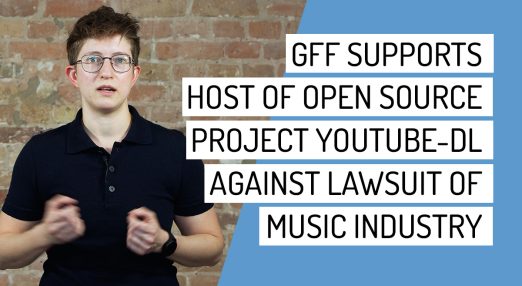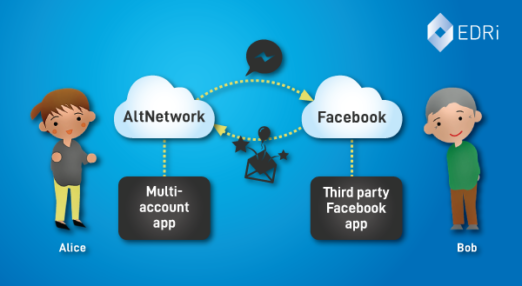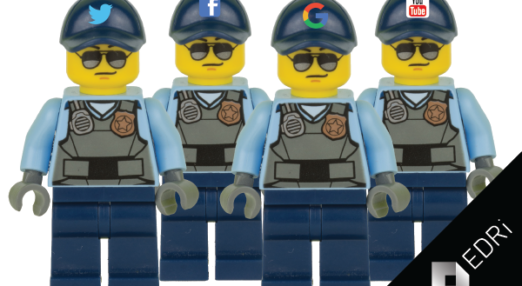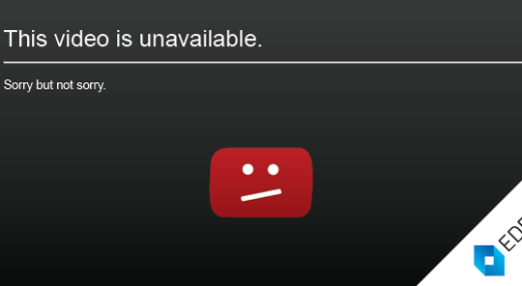youtube
Filter by...
-

Music industry against Uberspace: Video downloads are not copyright infringements!
EDRi's member Gesellschaft für Freiheitsrechte fights against the music industry's attempts to put a digital lock on open source software, that enable media, human rights defenders, archivists and many others to access essential content.
Read more
-

Interoperability: A way to escape toxic online environments
The political debate on the future Digital Services Act mostly revolves around the question of online hate speech and how to best counter it. Whether based on state intervention or self-regulatory efforts, the solutions to address this legitimate public policy objective will be manifold. In its letter to France criticising the draft legislation on hateful […]
Read more
-

A privately managed public space?
Our “public spaces” online where we meet each other, organise, or speak about social issues, are often controlled and dominated by private companies (platforms like Facebook and YouTube). Pushing platforms to decide which opinions we are allowed to express and which not is not going to solve major problems in our society. The EU rules […]
Read more
-

Open letter demands interoperability of the big online platforms
On 21 May 2019, EDRi observer La Quadrature du Net, along with 70 other organisations, including some EDRi members, sent a letter asking the French government and members of the Parliament to force web giants (Facebook, Youtube, Twitter…) to be interoperable with other online services. The purpose is to allow users of these platforms to […]
Read more
-

What the YouTube and Facebook statistics aren’t telling us
After the recent attack against a mosque in New Zealand, the large social media platforms published figures on their efforts to limit the spread of the video of the attack. What do those figures tell us?
Read more
-

ENDitorial: YouTube puts uploaders, viewers & itself in a tough position
A pattern is emerging. After blocking a controversial video, YouTube nonpologises for doing so, and reinstates the video... just to block it again a few months later. The procedures around content moderation need to improve, but that's not all: more needs to change.
Read more
-

Women on Waves: how internet companies police our speech
Increasingly, internet companies decide which content we're allowed to publish and receive.
Read more
-

Stalking is easy with Facebook, and now even easier with Snapchat
We seem to get more and more accustomed to using apps that can easily track our movements. It is convenient to simply share your location with friends, instead of sending messages or calling to arrange where to meet. But are you aware of when and how you are giving the companies an insight into our […]
Read more
-

Social media as censors of public sphere: YouTube vs. Ombudsman
In early September 2016, a popular Norwegian writer got suspended from Facebook, on account of “child nudity”. The matter escalated into an international incident, involving Norway’s largest printed newspaper and the country’s prime minister. Finally the writer’s Facebook status was restored, the suspension was ended, and Facebook promised to do better.
Read more
-

Specialised services: A make-or-break issue for the open internet
Net neutrality is the principle that all the internet traffic is treated equally, without blocking or slowing down certain data. Net neutrality is crucial for fair competition between online services, for innovation, and for freedom of expression online. The European Parliament has adopted a Regulation that includes provisions on net neutrality. Currently, the BEREC (the […]
Read more
-

EDRi’s submission to the “Platforms consultation”
EDRi submitted its response to the European Commission consultation on platforms, online intermediaries, data, cloud computing and the collaborative economy on the 24 December 2015. The consultation covered a very broad range of different online services such as AirBnB, eBay, Netflix, Facebook, YouTube and others, which were labeled under the dubious denomination of “platform”. It […]
Read more
-

Turkey: New attempts to limit online access and freedom of speech
The Turkish government has been heavily critised for implementing censorship on the Internet and other media. Currently, over 100 000 websites are officially blocked in the country. Additionally, popular websites such as Twitter, Facebook and YouTube have been frequently blocked with or without a court order. Other than officially blocking websites, Turkish Internet Service Providers […]
Read more
